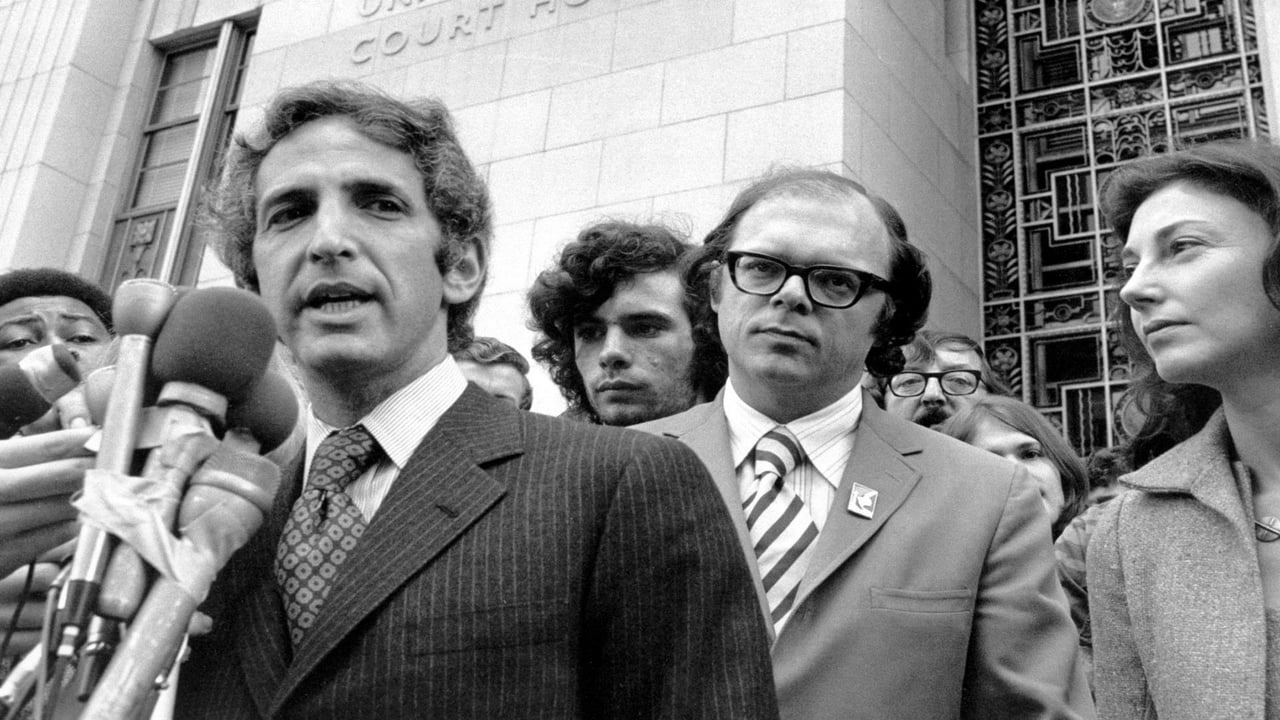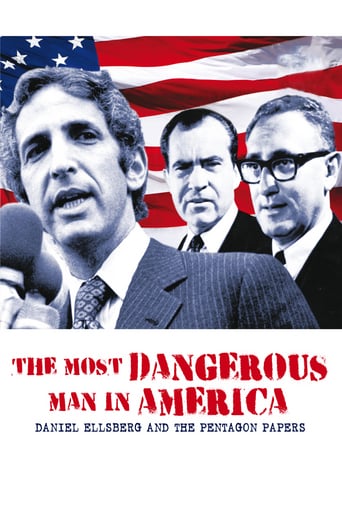

Daniel Ellsberg was indeed a man of conscience who did his country a great service when he told the truth about the Vietnam War. This documentary explains in great detail how his personal experience both as a Marine Corps officer and later as a Rand Corporation officer made this possible. His unique POV put him in a position that compelled him to release the information as a matter of conscience to stop the killing. I see NOW that the Wikileaks case could very well develop along similar lines. The message I got from this documentary is to trust NO POLITICIAN - they all lie and the people must be informed. Finally, the American press has become lazy. We need a Walter Cronkite for the 21st Century. Oh, and Richard Nixon was not just a crook - he was evil, too. The documentary (and Nixon's own words) will make that clear.
... View MoreIf now we have Julian Assange and his feared Wikileaks to tells us the truth behind powerful organizations and their secrets we must thank that one day a man named Daniel Ellsberg who saw what's going wrong with another gigantic corporation named United States and its affairs during the Vietnam war and decided to be one of the most important characters in history by leaking to the press the infamous Pentagon Papers, a Top Secret study revealing the whole truth about what was really happening in Vietnam and the U.S. involvement in it since 1945.In "The Most Dangerous Man in America: Daniel Ellsberg and the Pentagon Papers" directors Judith Ehrlich and Rick Goldsmith interview Ellsberg and other people involved in Dr. Ellsberg's career and life before and after the Pentagon papers affair, from his work on RAND Corporation and his entrance working in the Pentagon under the command of Secretary of Defense Robert McNamara. After seeing how bad things were in Vietnam (and he was there himself), after plans and more plans of increasing conflicts and more attacks in Vietnam, seeing that his work was being perpetrated for wrong things Ellsberg changed his views of what he was doing; and after attending a protest against the war, he decided to do the right thing: show to the American public the truth about the war, what was going on in Vietnam and show that his country had nothing to do in there.The documentary establishes all the risk this guy went through, how he executed the leaking giving the study to Senators who were opposed to the war and to 17 newsgroups, starting with The New York Times who was censored by Nixon because of the publishing of the papers, and all the medias who tried to publish the papers was censored until the Supreme Court decided that the censorship was wrong. In less than two hours the movie displays lots of information without being boring or too much extensive, everything is very interesting to follow, very contrived and well put together (but the first minutes are a little bit slow, you have to be persistent to watch it). The most captivating part is when we see all the Ellsberg and his friend Daniel Russo crusade after they were charged of espionage, and the whole controversy about the publishing of the papers and that are still relevant today in a time where secrets can't be revealed otherwise there's always someone who'll try to impeach, to suffocate the freedom of speech, and the freedom of press; in a world where just simply stand for something and to have an opinion still it's too dangerous and might cause a war, and by war is mean not only the armed conflict, but the idealistic conflict, the words conflict. Here's a film that shows us the man behind the act; a David among thousands of Golias; a man who worked and defended his country and was accused by it at the same time while trying to protect the country interests and lives; a man who changed things and fought for the right thing, taking all the necessary and unnecessary risks for it and even obtained more than he wanted. This is a real story with real persons and it's a great story to be seen. 10/10
... View MoreFor starters, the film itself is not very artful. It is dry, plodding and unimaginative. And to Ellsberg himself, initially he comes across as a sympathetic figure, who lost half his family as a boy, was very focused and driven as a young man, and was ultimately thoughtful enough to see through the lies and want to do what he could to make things right. But the film seems more like a vehicle for him to wash his hands of his own crimes, and profess his own huge important place in American history for ratting out the Pentagon. It's not often that the subject of a documentary is also the narrator, and that was off putting as well. This was a dull, disappointing film.
... View MoreDocumentaries can often be boring if the subject does not relate to our own experiences, but as this one did to mine and still does thus it was a success to me even though it had its faults, not in what it did but what it did not do. New and old footage was interlaced throughout and did a great job of telling the entire sick story up until President(I am a damn good crook)Nixon resigned, but it missed being a complete story in having no follow up about Ellberg's life afterward other than what he now looks like in interviews for this film.......how is he now publicly perceived?... how did he make a living after?... did he ever get his life back to "normal"?... and, most importantly, what does he think of his actions now and would he do it all over again after what money/reputation/street cred it cost him, or made him? These answers needed to be told and would have made it a full and complete story.We sure needed someone like Ellsberg to expose Bush's Folly in Iraq. The very same lying caused the Iraq war........faked news stated by the President. Maybe that causes all wars? Why don't we learn better from these failures and not repeat them only one or two generations later? I think it is mostly because the people in power later are no longer the same people as earlier, and America is not a country that cares about or learns well/anything from its elder's experiences like some great, long-term societies of the past that were successful over thousands of years as a direct result of elder wisdom.
... View More